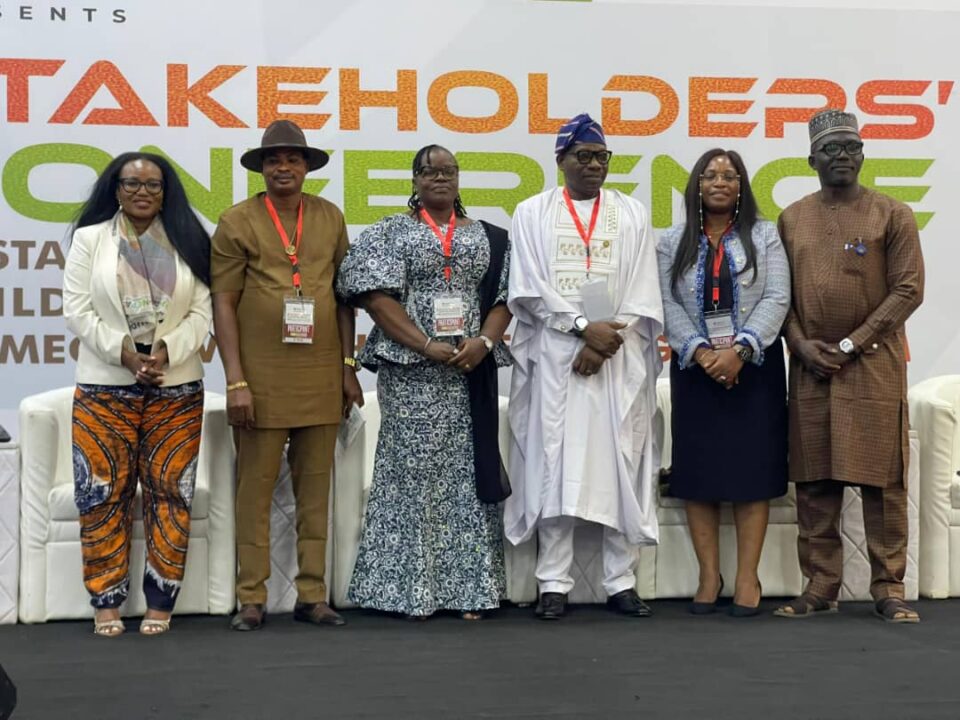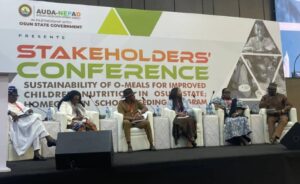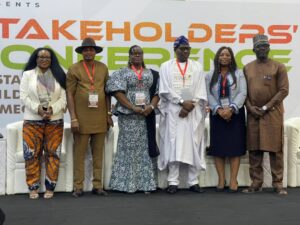O-Meal: HFDI Shares Insights On Community Engagement, Resource Mobilization, and Long-Term Benefits Of Investment
The Executive Director Hope for Family Development Initiative HFDI, Dr Aremu Stephen Akinyele was part of the panelist at an high-level stakeholders conference focused on the sustainability of the Osun Elementary School Feeding and Health Programme (O-MEAL) where he gave insights on community engagement, resource mobilization, and the long-term benefits of investing in school meals.
The event which held in Abuja was organized by the Federal Ministry of Budget and Economic Planning and aimed at reinforcing national commitment toward improving child nutrition through sustained school feeding interventions.
The conference brought together critical stakeholders from across Nigeria, including government officials, development partners, civil society organizations, and the private sector, and provided a strategic platform to share experiences, identify challenges, and develop sustainable solutions for school feeding programs, especially in light of Osun State’s continued efforts in this space.
In attendance at the conference were distinguished personalities such as representatives of the Dangote Foundation, commissioners and permanent secretaries from relevant ministries, private sector executives, donor agencies, and other stakeholders actively involved in nutrition and basic education.
The Osun delegation at the conference was led by the Honourable Commissioner Ministry of Economic Planning, Budget and Development, Pro Morufu Adeleke and the Permanent Secretary, Mrs Yetunde Esan, who reiterated the Federal Government’s support for states like Osun that have shown leadership in sustaining the feeding program despite economic challenges.
Major highlight of the discussions centered around the urgent need for active participation from the private sector and development partners in supporting O-MEAL.
Panel discussions explored themes such as accountability mechanisms, nutritional standards, monitoring and evaluation systems, and the socio-economic impact of school feeding on household food security and school attendance, and the conference underscored Osun State’s unique position as a model for sustainable school feeding in Nigeria. Participants agreed that the success of O-MEAL provides a valuable case study that can be replicated nationwide if adequate political commitment and multi-stakeholder collaboration are harnessed.
The stakeholders noted that while most states in Nigeria have halted school feeding programs due to funding constraints, Osun remains the only state out of the 36 in Nigeria that has maintained the initiative, demonstrating strong political will and strategic planning.




